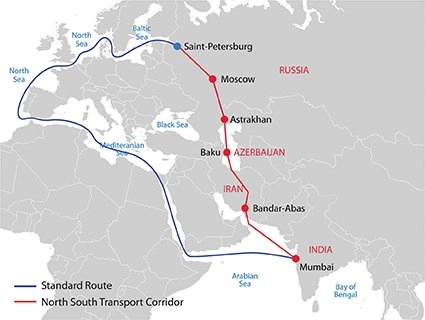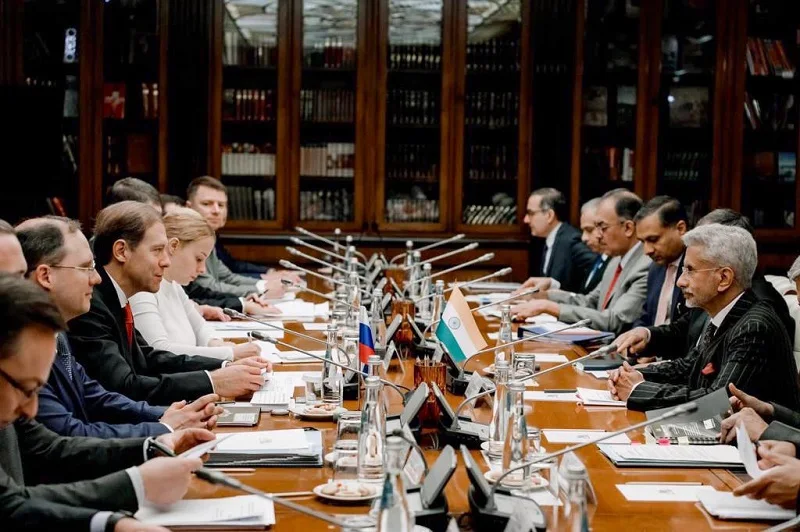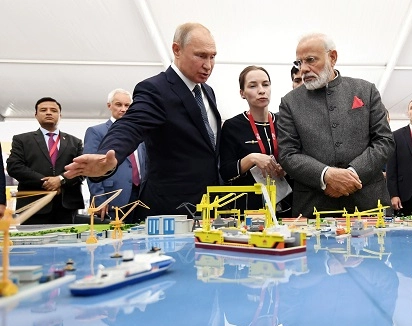The geography of partnership between India and Russia continues to expand beyond New Delhi and Moscow to the other regions of both countries.
After Novgorod and Samara, representatives from various companies from Russia’s Orenburg region are currently touring India to intensify bilateral trade and economic cooperation.
Later this month, the Federation of Indian Export Organisations (FIEO) is mounting a B2B delegation of food and agri exporters to Russia with the support of the Indian Embassy in Moscow and the Consulate Office in Saint Petersburg.
The product coverage of travelling delegation would include all food and agri items including fruits and vegetables, meat and marine products, cereals, millets, pulses, spices, rice, tea, coffee and other beverages, dairy and poultry, dry fruits, honey, bakery and soya products, ready to cook/ready to eat, etc.
Quite significantly, FIEO stated that in addition to the B2B meetings in Moscow and Saint Petersburg, Indian Ambassador to Moscow Pavan Kapoor will lead the Indian delegation to Astrakhan for meetings with counterparts/B2B on April 27 at the invitation of Governor Igor Yuryevich Babushkin.
Located in the southeast of the European part of Russia, in the lower reaches of the Volga River, Astrakhan is not only rich in agriculture and also plays a critical role in logistics as it lies on the Caspian Sea.
The region is part of the Southern Federal District and is a border region: by land, its territory borders with Kazakhstan, and by sea with Azerbaijan, Iran, Kazakhstan, and Turkmenistan.
It also plays an important role in India’s plan for the improvement of the transport and logistics architecture of the Eurasian region through the International North-South Transport Corridor (INSTC) – the 7,200 km-long multimodal trade corridor which will start from Mumbai, with nodes in West Asia, Central Asia, Caucasia, and Russia covering large swathes of territory in the landlocked region.
India has been pushing extensively for the utilization of New Delhi-backed Chabahar port in Iran – and its inclusion in the INSTC framework – since it will provide a great option as an alternative to the Suez Canal with a massive reduction in travel time and savings.
Last year, Tehran tested the INSTC connectivity routes with the successful completion of the first transit of goods from Astrakhan to Mumbai.

Russian President Vladimir Putin too has spoken about advancing the transport artery in the Caspian Basin until 2030, focusing on the development of relevant infrastructure at the ports of Astrakhan, Olya, and Makhachkala.
The pace of military-technical and economic cooperation, along with the trade turnover as a whole, continues to grow between New Delhi and Moscow ahead of the India-Russia Inter-Governmental Commission on Trade, Economic, Scientific, Technological and Cultural Cooperation (IRIGC-TEC) meeting later this month.
External Affairs Minister S Jaishankar co-chaired the online IRIGC-TEC negotiations with Russian Deputy Prime Minister Denis Manturov, who is also the country’s Minister of Industry and Trade, during online discussions held last month to unlock the “full potential” of India-Russia bilateral trade and economic relations.

The meeting will also take stock of the activities of working groups in the field of industry, energy, agriculture, pharmaceuticals, finance, civil aviation, etc.
As Indian exports to Russia continue to jump and both countries work on trading in Rupee and Ruble, the ‘full-scale meeting’ of the commission would clearly demonstrate how extensive the agenda of India-Russian relations is.
The Inter-Governmental Commission meeting will be followed by the visit of Russian Foreign Minister Sergei Lavrov to attend the Foreign Ministers’ Summit of the Shanghai Cooperation Organisation (SCO) which will be held under India’s chairmanship in Goa on May 4-5.
Analysts have not ruled out Russia pushing for a meeting between Jaishankar, Lavrov, and Chinese Foreign Minister Qin Gang under the RIC (Russia-India-China) format on the sidelines of the SCO event in Goa.
Also Read: With $30 billion bilateral trade turnover in sight, India and Russia plan big for 2023




















